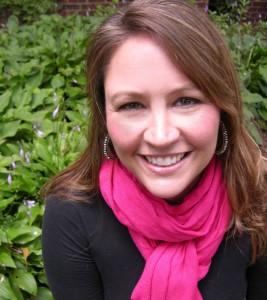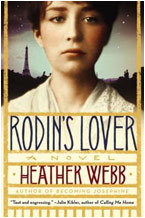I’m delighted to share a Q & A featuring panelist and talented novelist Sophie Perinot. In less than three weeks, Sophie will be giving a presentation at the Historical Novel Society Conference in St. Petersburg called LOCATION, LOCATION: TRANSPORTING READERS TO HISTORICAL SETTINGS. My bags are packed. I can’t wait! (P.S. Late registration is still open!)
 What first got you interested in historical fiction?
What first got you interested in historical fiction?
I am a history geek (have my BA in history) and I come from a family of history geeks. When I was a child, I visited historical sites while other kids were at amusement parks. I also grew up watching all those Masterpiece Theater costume dramas of classic literature, and ninety-nine percent of my favorite books were (are) set in the past. So, historical fiction was a natural niche for me. Since I studied French abroad, and I am a devotee of Alexandre Dumas, peré, French history seemed like a logical starting point, and both my debut novel and the book I am working on currently are set at least partly in France.
How do you find the people and topics of your books?
Serendipity. Sometimes I catch a glimpse of aninteresting historical figure out of the corner of my eye and just have to pursue her.For example, I met Marguerite and Eleanor of Provence, the main characters fromThe Sister Queens, in a footnote. I was researching a 16th century project and there they were in a book on the history of Notre Dame de Parisin conjunction with a discussion of the church’s Portal Rouge. Other times an image, event,or work of art may spark an obsession (oops, I mean idea). For example, I was drawn to 17th century Rome—to the world of the Barberini pope (Urban VIII) and his patron-of-the-arts nephews—by the haunting lyrics of an unknown composer and by the relationship between a cardinal and an artist.
For you, what is the line between fiction and fact?
Let me start by saying that I have a background in history having graduated with a BA in that subject—but I don’t write BIG “H” history (I have a sister who does, with several scholarly books to her credit). I write historical fiction which is absolutely not the same thing. My work is not driven by the overt goal of educating readers on a particular period or by presenting an overview of a historical issue or time. Instead, it is driven by considerations of plot and theme—by the desire to tell a universal story that is set in the past but transcends it. So, for example, in The Sister Queens the driving theme of my novel is the sisterly relationship between Marguerite Queen of France and Eleanor Queen of England. That focus means there is a lot of important 13th century history that doesn’t get discussed in my story—one example would be the English Baron’s rebellion. My book ends before the rebellion itself but doubtless where my focus different—for example if Simon de Montfort were my main character—the causes of the rebellion would be laid out in the novel.
So my work isn’t driven by history, but if I write first rate historical fiction – and I’d like to think I do – then in telling my story I want to be true to historical facts as we know them. How do I achieve that? First, I don’t wing it. Writing historical fiction I use the same sorts of resources that one would use to write a history paper—JSTOR, scholarly journal articles, primary and secondary sources. Second, When I knowingly make a change from history or when I am faced with a choice of facts/dates—for example there are conflicting birthdates for youngest sibling of the four Provincial sisters in my debut novel—I use my author’s note to let readers know that I have made a deviation, inference or choice.
Of course the line between fact and fiction is a moving target. It is vital to keep in mind, whether you are writing historical fiction or studying history, that what we “know” for certain in history often changes. New studies, new information, new scholarship can challenge and change accepted facts, and undercut theories that have stood for decades or even longer.My favorite example? For years everybodyknew that black rats spread the plague. Recently, however, work by a well-known archaeologist (who conducted a decade long excavation and study) came to the conclusion that, at least with respect to the London Plague of 1348-49, black rats were not the carriers. Instead human beings themselves were responsible for its primary transmission. And that is just one fascinating reminder that we ought not be too sanguine about what we know to be “the truth.”
Do you have an anecdote about a reading or fan interaction you’d like to share?
I don’t have any funny stories, but I do want to say that interacting with readers is the crack-cocaine of this job (without the law-breaking and dangerous addition of course). Getting an email or a note from someone who has enjoyed mybook, or meeting readers at an author event leaves my adrenaline up for days. Last year after the Baltimore Book Festival I was whistling and skipping around my house for a full week.
Is there an era/area that is your favorite to write about? How about to read?
As a writer, I am a nut for the 16th Century, particularly Valois France. But I am a “character driven” writer rather than being driven by a particular setting or time period. I was lured to the 13th century by the sisters from Provence at the center of my debut, The Sister Queens, and a certain 17th century Cardinal (a nephew of the Pope) and musician are calling me to Rome. Have laptop, will time-travel—that’s me.
As a reader like to sample the centuries. A book (with captivating characters and strong writing of course) set anywhere from the ancient world up to and including the early 19th century will find a place in my TBR pile. I am not a big fan of historical fiction set in the second half of the 19th century or 20th century—if I want to read something that recent I’ll pick up a work of fiction (contemporary or other) written in that period (e.g. Cather). I make an exception for World War II historical fiction.
What are your favorite reads?
Jane Austen is my ultimate “comfort food” author. Her books have been my constant companions since I was in my teens. During college and law school I made a point of re-reading one of her novels during every exam period to keep myself sane and relaxed. There is not a word out of place in Austen. And even though I know how every one of her books ends, they still keep me thoroughly engaged each time I pick one up. They also celebrate values that, while no longer in fashion, I consider very important. Particularly duty. Perhaps my all time favorite Austen quote is Mr. Knightly’s admonition “There is one thing, Emma, which a man can always do, if he chooses, and that is, his duty.”
Beyond Austen, if readers are interested I have a special “bookshelf page” on my author website where I share both those books I always keep near at hand and those I am excited about currently. In each case I have a brief annotation on why the book makes the shelf. CLICK HERE
Is there a writer, living or deceased, you would like to meet?
I’d love to spend an evening with the two grandfathers of historical fiction—Alexander Dumas,peré, and Sir Walter Scott. Heck I’d even cook them dinner. Although their work is very different, I deeply admire both authors. Having an opportunity to hear about their writing processes, their inspirations, their triumphs and frustrations would, I am sure, be transformative.
 ABOUT THE AUTHOR
ABOUT THE AUTHOR
Prior to being reincarnated as writer, Ms. Perinot was a lawyer. An avid reader, especially of classic literature, and life-long student of history, Sophie was quite naturally drawn to writing historical fiction. As someone who studied French in Switzerland, and a devotee of Alexandre Dumas, French history was a logical starting point.
Sophie is an active member of the Historical Novel Society and has attended all of the group’s North American Conferences.Sophie is also an enthusiastic resident of the virtual world where she is active among the literary Twitterati,on Facebook, and at the two group blogs she is proud to be a member of Book Pregnant (what to expect when you are expecting a debut novel) and From the Write Angle. For more information on Sophie and her novel The Sister Queens, please check out her website.
One Comment
Join the conversation and post a comment.














Lovely, congratz on the Sister Queens, my favorite time period, and much success at HNS in Florida. I found your blog thru Jody Allen. =)